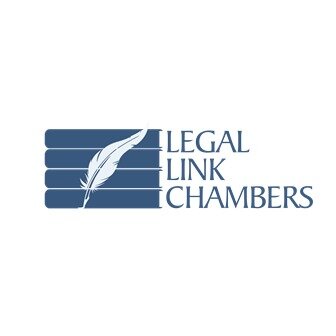Best Bankruptcy Lawyers in Kigali
Share your needs with us, get contacted by law firms.
Free. Takes 2 min.
List of the best lawyers in Kigali, Rwanda
About Bankruptcy Law in Kigali, Rwanda
Bankruptcy law in Kigali, Rwanda provides a legal mechanism for individuals and businesses who are unable to repay their debts. This process allows for the reorganization or liquidation of assets to satisfy creditors, providing a fresh start for the debtor. Due to Rwanda's rapidly developing economy, the legal frameworks surrounding bankruptcy have evolved to address both personal and commercial insolvency issues, ensuring fair treatment for debtors and creditors alike.
Why You May Need a Lawyer
Navigating bankruptcy can be complex, and there are several situations where legal advice may be necessary. If you are dealing with seemingly insurmountable debt and cannot meet your financial obligations, a lawyer can help you explore bankruptcy as an option. Additionally, if creditors are threatening legal action, or if your business is struggling due to financial mismanagement, legal counsel can guide you through the process and help protect your assets. Lawyers specializing in bankruptcy can also negotiate settlements and provide representation in court proceedings.
Local Laws Overview
In Rwanda, the law governing bankruptcy is embedded within the commercial code, which provides specific guidelines for both personal and corporate insolvency. Key aspects include the classification of different debt types, the establishment of creditor hierarchies, and the conditions under which a debtor may be declared bankrupt. The legal framework ensures that the process is fair and transparent, with the Commercial Court in Kigali handling most insolvency cases. The law also provides for corporate rescue mechanisms, allowing businesses in distress to reorganize rather than liquidate entirely.
Frequently Asked Questions
What is bankruptcy and who can declare it?
Bankruptcy is a legal proceeding involving a person or business that is unable to repay outstanding debts. Both individuals and companies in Kigali can declare bankruptcy.
What are the grounds for declaring bankruptcy in Kigali?
The main ground for bankruptcy is the inability to meet debt obligations. This includes failing to pay contractual debts as they become due.
How does the bankruptcy process start?
The process begins when a debtor voluntarily files a petition in the Commercial Court or when a creditor applies to the court to declare a debtor bankrupt.
What happens to a debtor’s assets in bankruptcy?
In bankruptcy, a debtor’s non-exempt assets may be liquidated to repay creditors. However, certain assets may be protected by law to allow for a fresh start.
Can bankruptcy affect my credit score?
Yes, declaring bankruptcy can significantly impact your credit score and may affect your ability to obtain credit in the future.
What is the role of a bankruptcy trustee?
A trustee is appointed to manage the bankruptcy process, including evaluating the debtor's assets and distributing funds to creditors.
Can businesses avoid liquidation in bankruptcy?
Yes, through corporate rescue mechanisms such as restructuring or reorganization, businesses can avoid full liquidation.
What are the costs associated with filing for bankruptcy?
The costs can vary, including court fees, lawyer fees, and trustee expenses. It is advisable to consult a lawyer for a detailed estimate.
Are there alternatives to bankruptcy?
Yes, alternatives include debt negotiation, settlements, and voluntary arrangements with creditors that do not involve court proceedings.
How long does the bankruptcy process typically take?
The duration depends on the complexity of the case, but it can take several months to years to complete the process.
Additional Resources
For those seeking assistance, several resources are available in Kigali. The Rwanda Development Board (RDB) provides information on business-related legal issues, including bankruptcy. Also, the Kigali Bar Association offers guidance and may help you find a qualified lawyer. Local NGOs and financial advisory firms can also provide resources and support for those facing insolvency.
Next Steps
If you require legal assistance regarding bankruptcy, start by consulting with a qualified lawyer specializing in this field. You can contact the Kigali Bar Association for recommendations and advice on finding the right legal support. Additionally, gather all financial documents, including outstanding debts and current assets, to prepare for your consultation. Remember, early intervention and seeking the right advice can significantly affect the outcome of bankruptcy proceedings.
Lawzana helps you find the best lawyers and law firms in Kigali through a curated and pre-screened list of qualified legal professionals. Our platform offers rankings and detailed profiles of attorneys and law firms, allowing you to compare based on practice areas, including Bankruptcy, experience, and client feedback.
Each profile includes a description of the firm's areas of practice, client reviews, team members and partners, year of establishment, spoken languages, office locations, contact information, social media presence, and any published articles or resources. Most firms on our platform speak English and are experienced in both local and international legal matters.
Get a quote from top-rated law firms in Kigali, Rwanda — quickly, securely, and without unnecessary hassle.
Disclaimer:
The information provided on this page is for general informational purposes only and does not constitute legal advice. While we strive to ensure the accuracy and relevance of the content, legal information may change over time, and interpretations of the law can vary. You should always consult with a qualified legal professional for advice specific to your situation.
We disclaim all liability for actions taken or not taken based on the content of this page. If you believe any information is incorrect or outdated, please contact us, and we will review and update it where appropriate.











